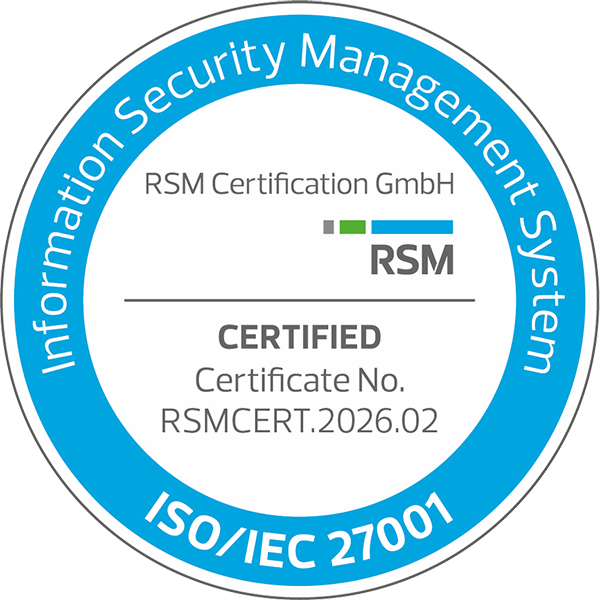It defines requirements that help organizations systematically protect their information and minimize risks. The goal is to ensure the confidentiality, integrity, and availability of data. ISO 27001 certification confirms that a company has implemented robust security controls.
What is ISO?
The abbreviation ISO stands for the International Organization for Standardization. It is a globally active, independent organization based in Geneva that has been developing international standards since 1947. The purpose of these standards is to make products, services, and processes comparable, safe, and efficient—across national and industry boundaries.
Why is ISO 27001 relevant for ECM systems?
Enterprise Content Management (ECM) includes the capture, management, storage, and archiving of corporate documents. Since sensitive data is processed—such as in invoice processing, digital personnel files, or archiving—high security standards are essential. ISO 27001 helps organizations meet these security requirements and comply with regulations such as the GDPR.
Core Elements of ISO 27001
An ISMS based on ISO 27001 is built on the following core principles:
- Risk Management: Identifying and assessing security risks, and implementing appropriate mitigation measures.
- Security Controls: Technical and organizational measures to defend against threats.
- Continuous Improvement: Regular audits and adjustments to optimize the level of security.
- Employee Training: Raising awareness and training staff in the secure handling of information.
Benefits of an ISO Certification
For companies that use or provide ECM solutions, ISO 27001 certification offers a wide range of benefits:
- Enhanced data security: Protection against cyberattacks, data loss, and unauthorized access.
- Legal compliance: Helps meet regulatory requirements such as GDPR and GoBD.
- Trustworthiness: Competitive edge through proven security standards.
- More efficient processes: Clear security policies reduce the risk of incidents and downtime.
Practical Implementation
Organizations aiming to implement ISO 27001 should follow these key steps:
- Current State Analysis: Review of existing security measures.
- Risk Assessment: Identification of potential threats.
- Action Planning: Development and implementation of security policies.
- Employee Training: Awareness and education for all relevant teams.
- Certification Audit: Assessment by an independent certification body.
Conclusion
ISO 27001 is an essential standard for organizations that handle sensitive data. In the context of ECM and archiving, this certification helps protect data reliably and meet regulatory requirements. Early implementation enhances security and strengthens trust among customers and partners.
FAQ on ISO 27001
Is ISO 27001 mandatory?
ISO/IEC 27001 is not legally required—neither in Germany nor in the EU. It is a voluntary standard. However, in certain industries or situations, it can become practically mandatory. In such cases, the standard becomes a strong “should.” For example:
- In tenders: Public institutions or large enterprises may require it as a prerequisite for participation.
- In B2B business: Partners and clients expect security—and an ISO certificate builds trust.
How long is an ISO 27001 certification valid?
Three years—but only with a continuous review process: Annual surveillance audits, in which the certification body verifies whether the Information Security Management System (ISMS) still meets the requirements of the ISO standard.
Which version of ISO 27001 is currently valid?
The current version of ISO/IEC 27001 is the 2022 edition – officially titled:
- ISO/IEC 27001:2022 – Information security, cybersecurity and privacy protection – Information security management systems – Requirements
This version replaces the previous 2013 edition and introduces several important changes.


